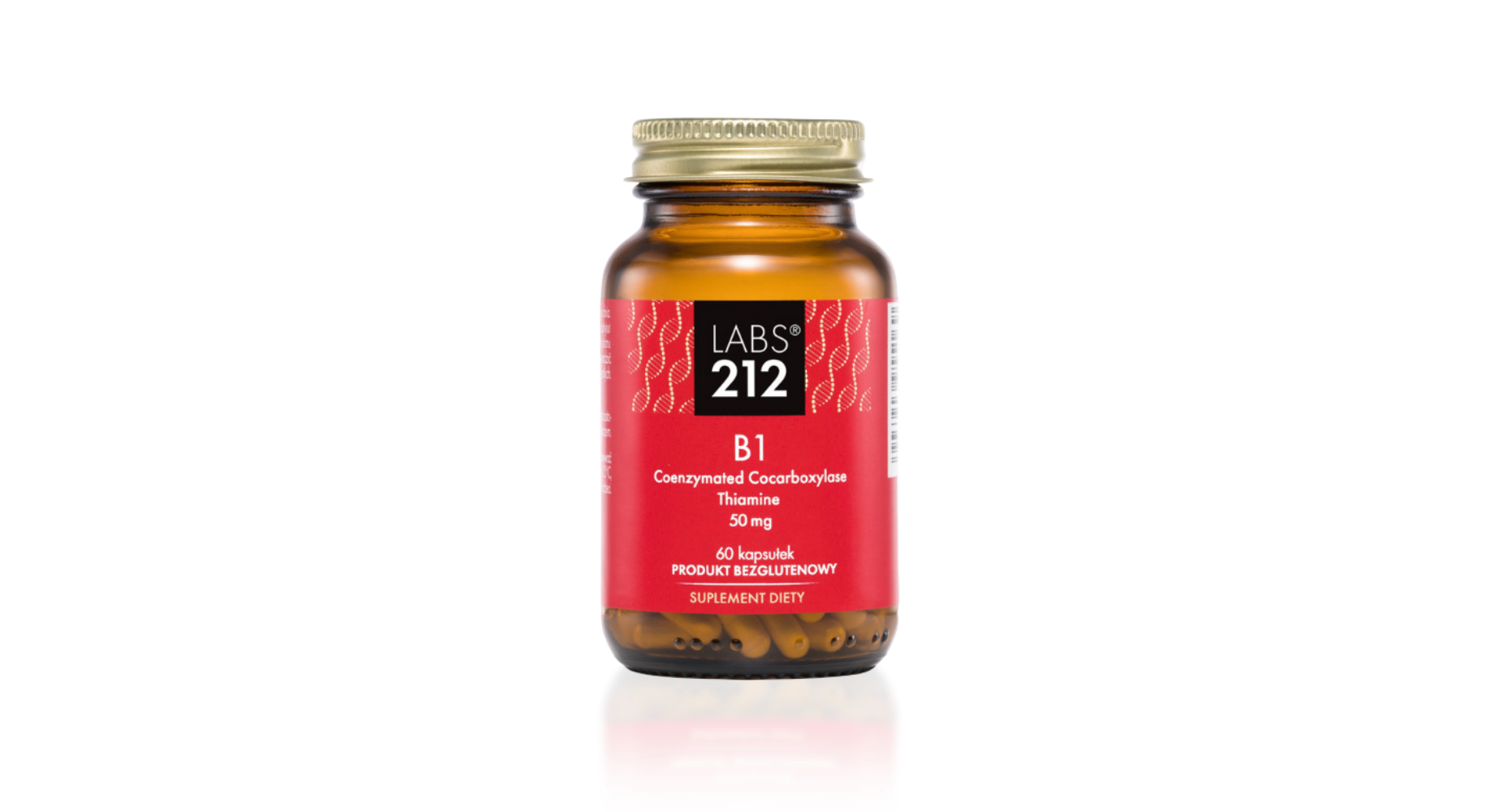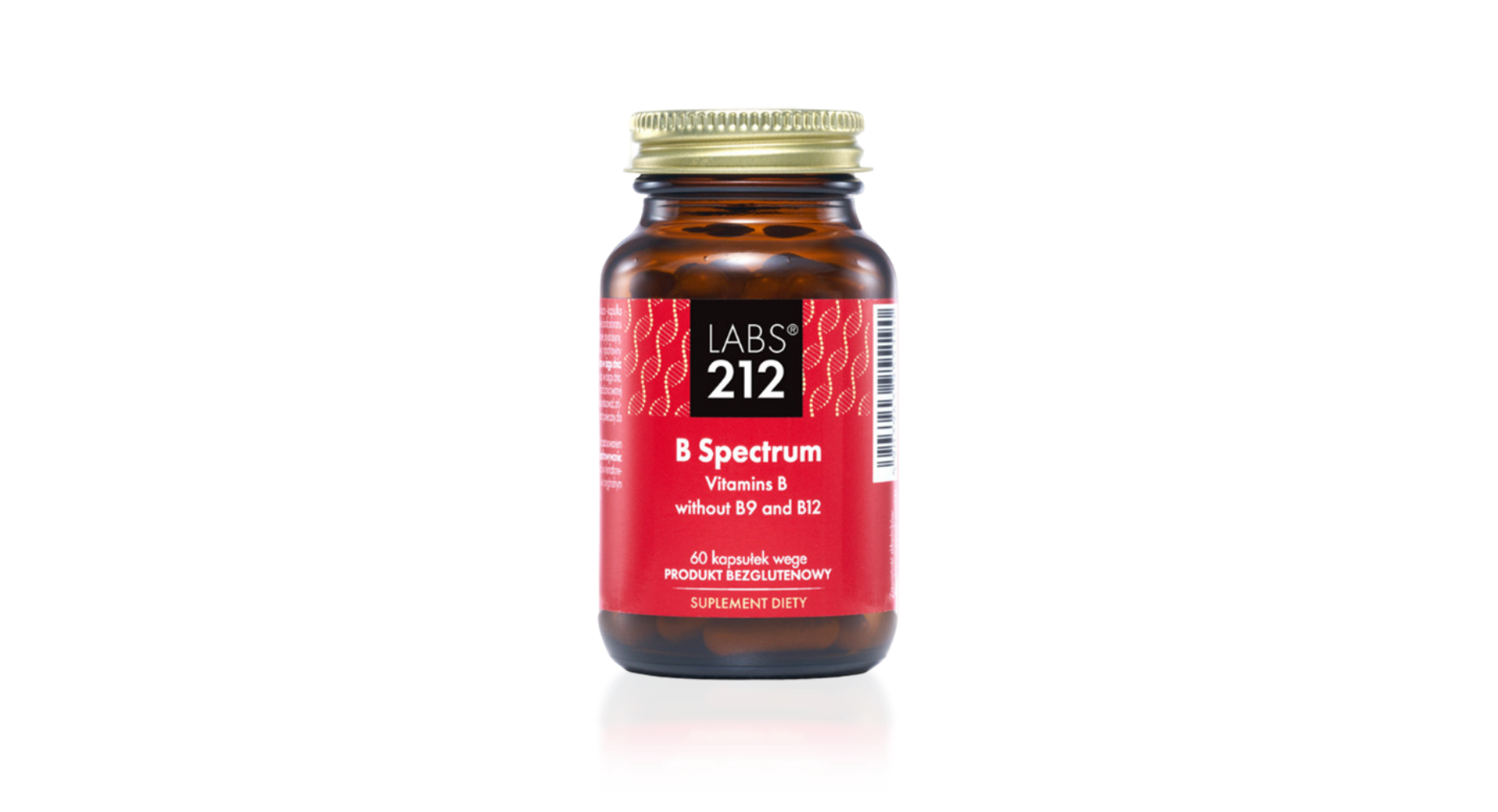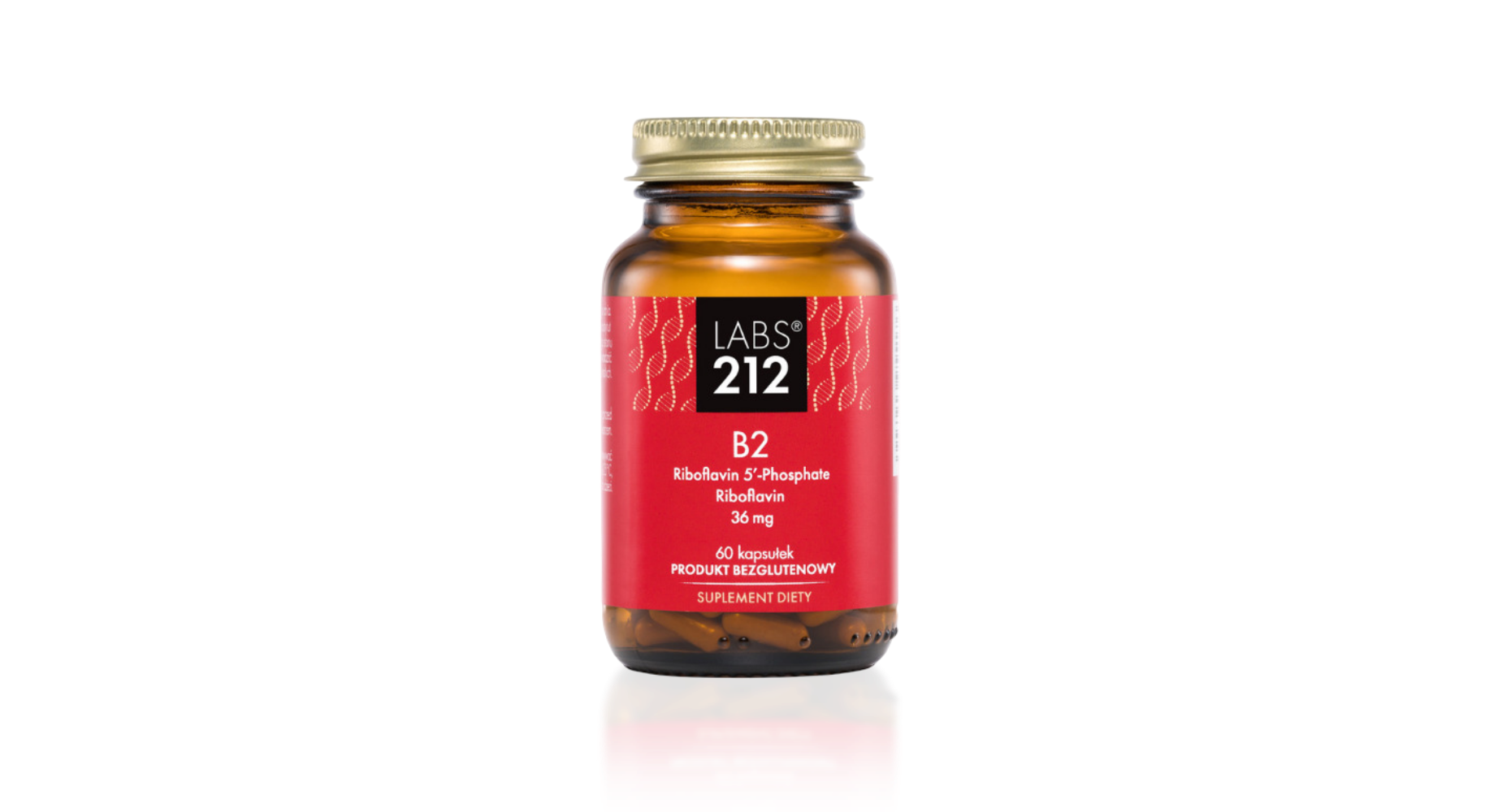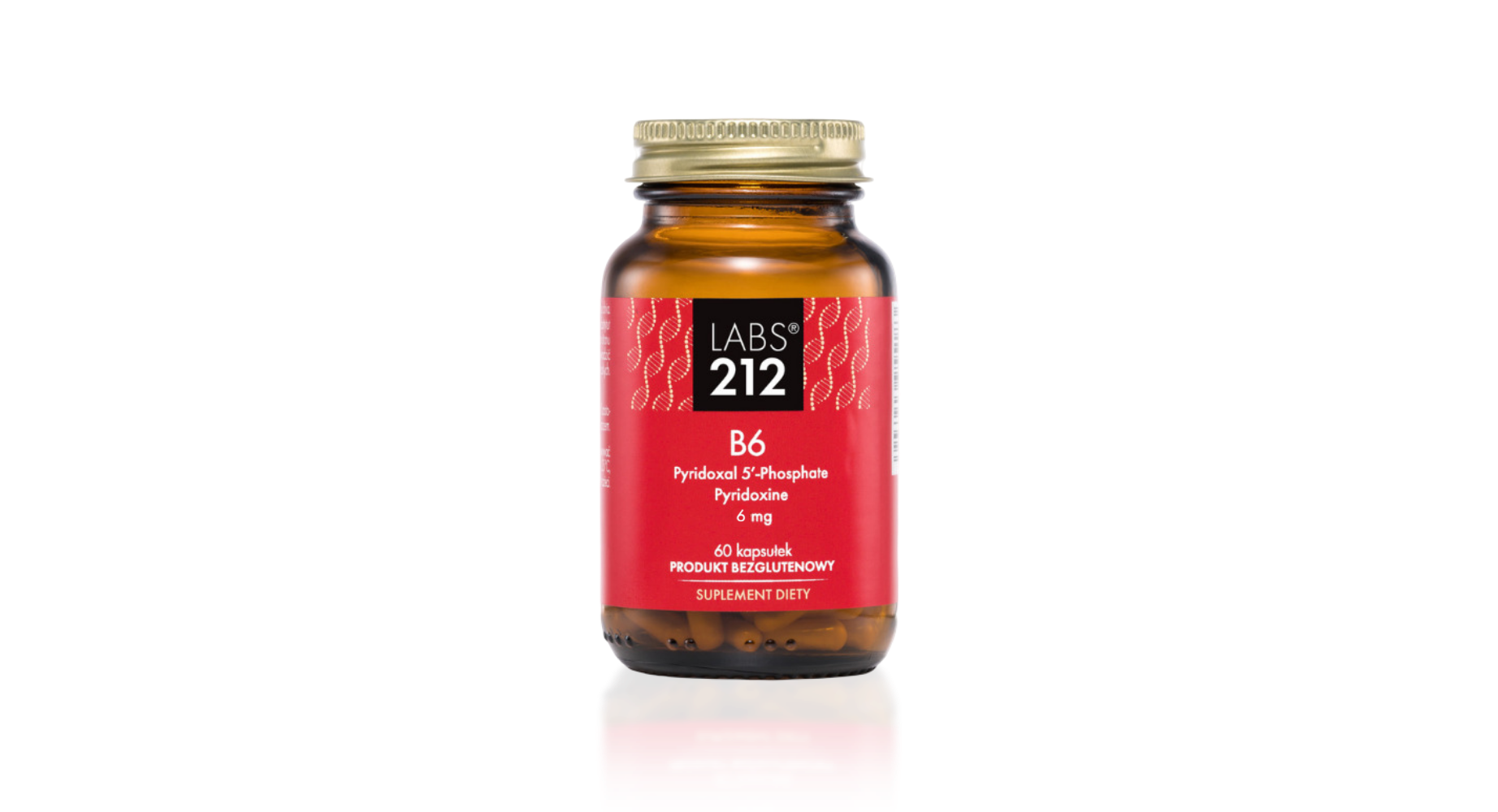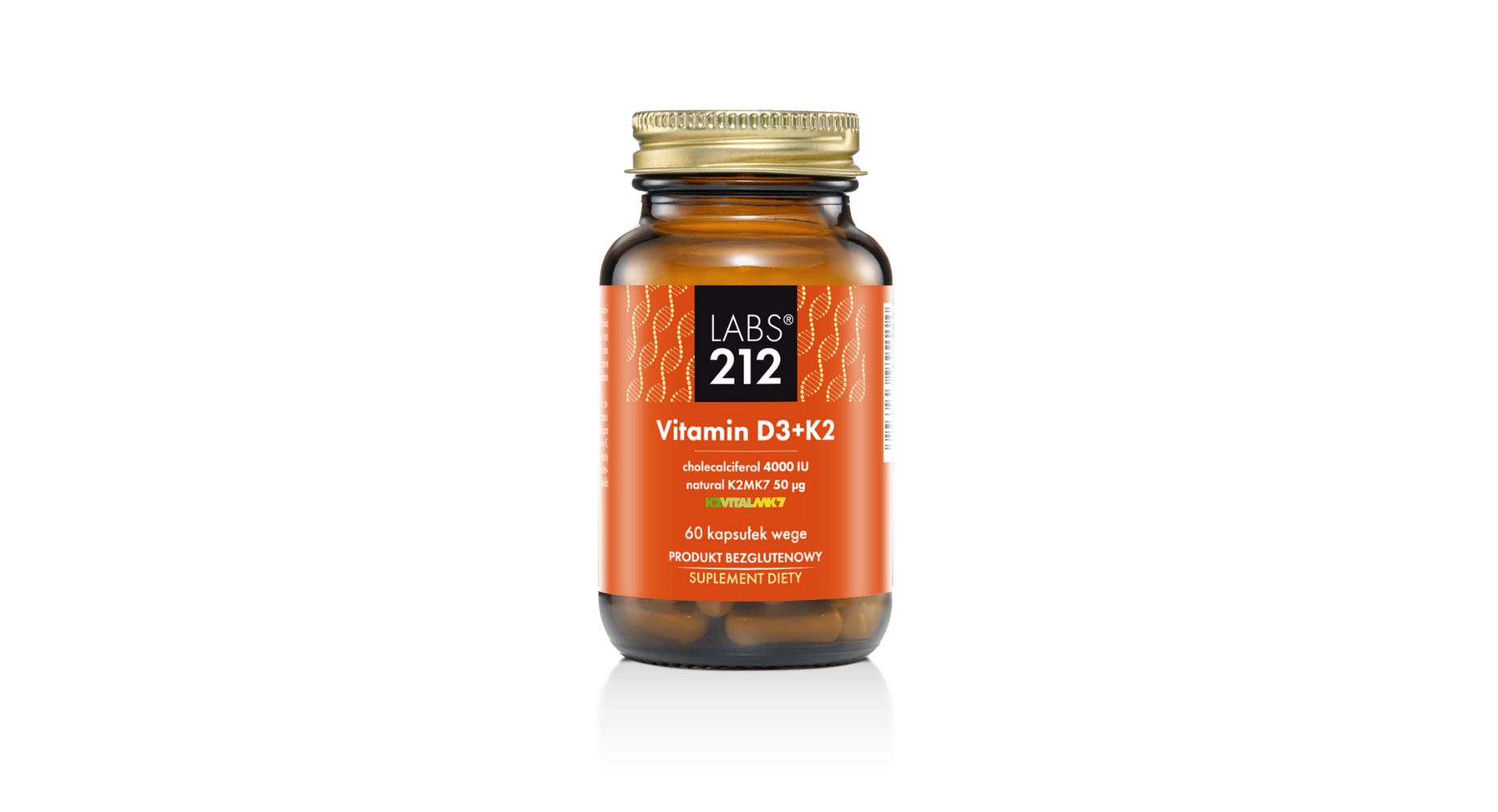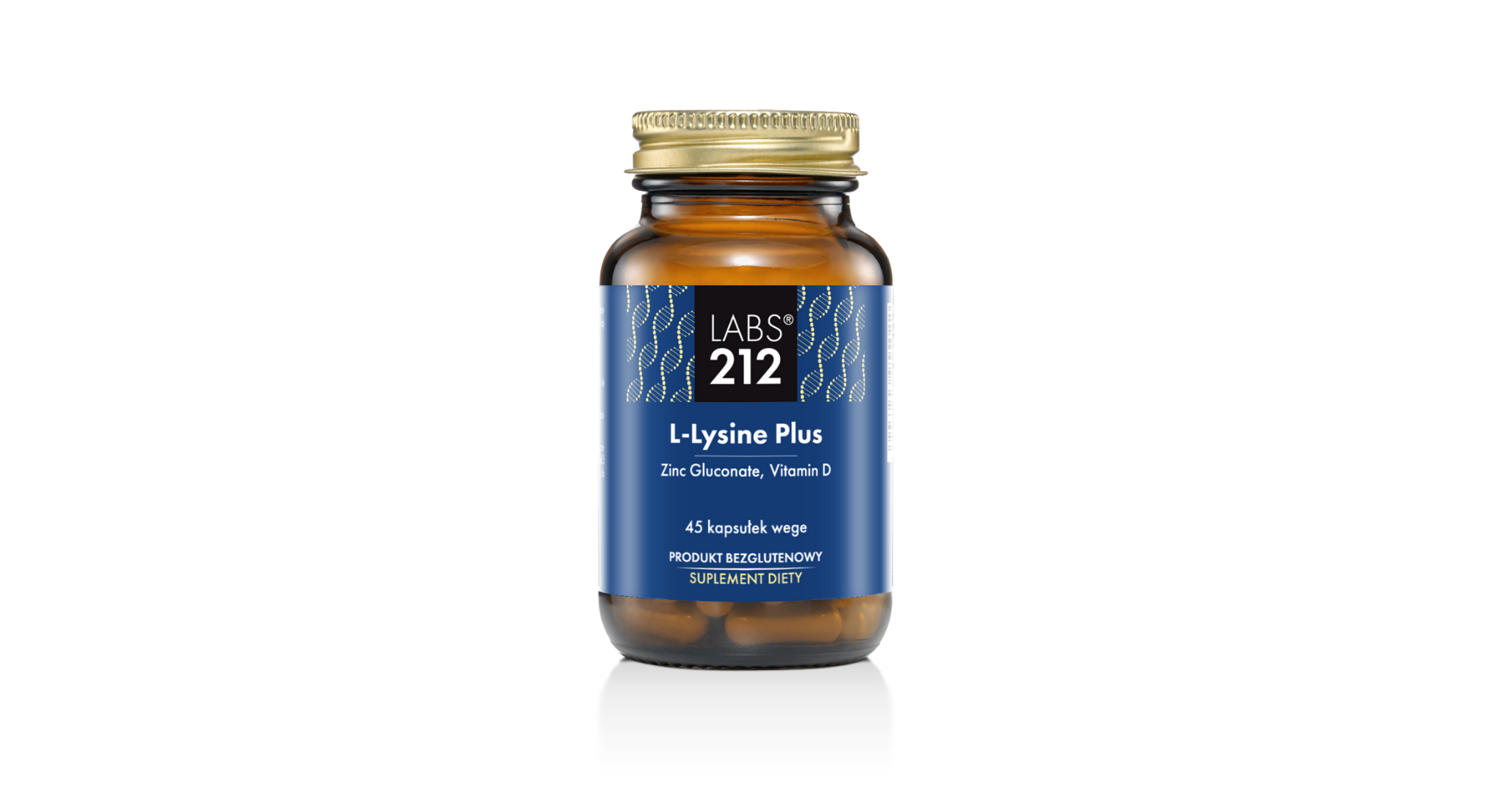Safe shopping guarantee. You will receive your product or your money back. See details
Dietary supplement
Vitamin B1 Coenzymated cocarboxylase + Thiamine
Contributes to the maintenance of the healthy nervous system
Helps maintain normal energy metabolism
An innovative blend of two forms of vitamin B1, including the coenzymated form
Tested microbiologically, for heavy metals and ethylene oxide
Quantity: 60 capsules / daily servings
Best before: 03.2027
Notified to GIS (Poland): 2021/08/02/SD/DCD3AC, BLOZ: 4032311
in stock
Price per piece: 1,17 zł


Previous lowest price was 84,99 zł.
Contributes to the maintenance of the healthy nervous system. Two forms of vitamin B1.
Dietary supplement
Vitamin B1 Coenzymated cocarboxylase + Thiamine
Contributes to the maintenance of the healthy nervous system
Helps maintain normal energy metabolism
An innovative blend of two forms of vitamin B1, including the coenzymated form
Tested microbiologically, for heavy metals and ethylene oxide
Quantity: 60 capsules / daily servings
Best before: 03.2027
Notified to GIS (Poland): 2021/08/02/SD/DCD3AC, BLOZ: 4032311
in stock
Previous lowest price was 84,99 zł.
Price per piece: 1,17 zł


Safe shopping guarantee. You will receive your product or your money back. See details
Vitamin B1 Coenzymated Cocarboxylase + Thiamine is a capsule-form supplement containing Vitamin B1 in two forms: Thiamine Pyrophosphate (Cocarboxylase) and Thiamine. Vitamin B1 is a water-soluble substance, also known as Thiamine.
Vitamin B1 Thiamine:
- helps maintain normal psychological functions,
- helps maintain normal energy metabolism,
- helps maintain normal nervous system function,
- helps maintain normal heart function.
| Ingredient | Amount per daily serving 1 capsule |
|
| Vitamin B1 (Thiamine Pyrophosphate Chloride) |
25 mg | 2272,7% DV* |
| Vitamin B1 (Thiamine Hydrochloride) |
25 mg | 2272,7% DV* |
| L-Leucine | 20 mg | – |
| Acacia Fiber | 26,9 mg | – |
*DV – Daily Value
Ingredients: Hydroxypropyl Methylcellulose (Vcaps®Plus Vegan Capsule), Thiamine Pyrophosphate Chloride, Thiamine Hydrochloride, Acacia Fiber, L-Leucine.
Gluten-free.
Servings per container: 60 capsules.
Take 1 capsule daily.
Recommended intake: take Vitamin B1 during or after a meal by 4 p.m. at the latest.
Do not exceed suggested use. Dietary supplements should not replace a varied diet. The product is recommended for adults. Suitable for vegans.
Warning: if pregnant or nursing, consult your doctor before use.
Capsule size: 4 (14 mm in length).
Organoleptic properties: powder with a slightly bitter aftertaste when taken out of the capsule.
Keep away from the sun at a temperature below 25°C in the original packaging, out of reach of small children.
Production lot number / Best before – see the unit label (left side of the label).
Batch tests performed towards:
- Microbiology: the presence of listeria, staphylococcus, Escherichia coli and coli groups, salmonella, total microbial count,
- heavy metals (arsenic, cadmium, lead, mercury),
- ethylene oxide and 2-chloroethanol,
- gluten content.
The tests were carried out at the independent, accredited Laboratorium GBA Polska – Certificates of Accreditation no: AB 1095


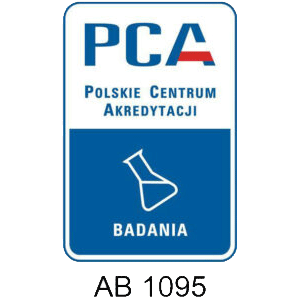
B1 history and interesting facts about the first of group B vitamins
The discovery of vitamins in many cases was strongly linked to dietary deficiencies. In fact, food was often ‘medicine’ and in many ancient cultures, it served as a cure for and prevention of diseases.
It was the turn of the 20th century that saw breakthrough discoveries in vitamins when many doctors observed the correlation between diseases and specific diets. In 1890, doctor Christiaan Eijkman noticed symptoms of beri-beri among convicts imprisoned in a Java prison. Similar observations were made among sailors by Dr Takaki, Director General of the Japan Naval Medical Services. In both cases, the intake of products containing thiamine eliminated beri-beri disease.
The major discovery was made by the Polish biochemist Kazimierz Funk, who researched the pathology of beri-beri. Funk confirmed earlier hypotheses and put forward a thesis that the cause of beri-beri was the deficiency of a certain essential substance, most likely a simple chemical compound containing nitrogen. In 1911, he succeeded in isolating a chemical compound from rice bran that prevented symptoms of beri-beri.
He called the substance ‘vitamin’ (Latin vita – life, amine – a compound that contains an amino group), or ‘vital amines’. Although, as it turned out later, other discovered compounds included in this group were not amines, the term proposed by Funk had already caught on.
References:
Vitamins monographs – Huntington University of Health Sciences
Thiamine pyrophosphate (coenzymated cocarboxylase) is a coenzyme of pyruvate dehydrogenase, alpha-ketoglucarate and transketolase.
The first two enzymes are important for pyruvate metabolism in the Krebs cycle and are the basis for energy production from food.
Thanks to transketolase, NADPH is produced, which is involved, among others, in the production of fatty acids and steroid hormones; it is also a component used in the synthesis of nucleic acids, and electron carriers (necessary for the production of ATP; NAD+, FAD).
Pyrophosphate is also highly concentrated in the cells of the nervous system and muscles as an essential component used in the production of nerve impulses and conscious muscle movement.
Coenzymated form of Vitamin B1 is a biologically active form of Vitamin B1, being one of the most absorbable forms of Vitamin B1.
References:
Vitamins monographs – Huntington University of Health Sciences
The best time to take Vitamin B1 is during or after a meal at 4 pm at the latest. Some sources also report that thiamine can be taken before a morning or lunch meal.
Vitamin B1 can be supplemented and combined with other B vitamins as well as other supplements. No drug interactions have been reported.
The Vitamin B1 capsule is one of the smallest capsules in existence. Its length is 14 mm. It is very easy to swallow.


